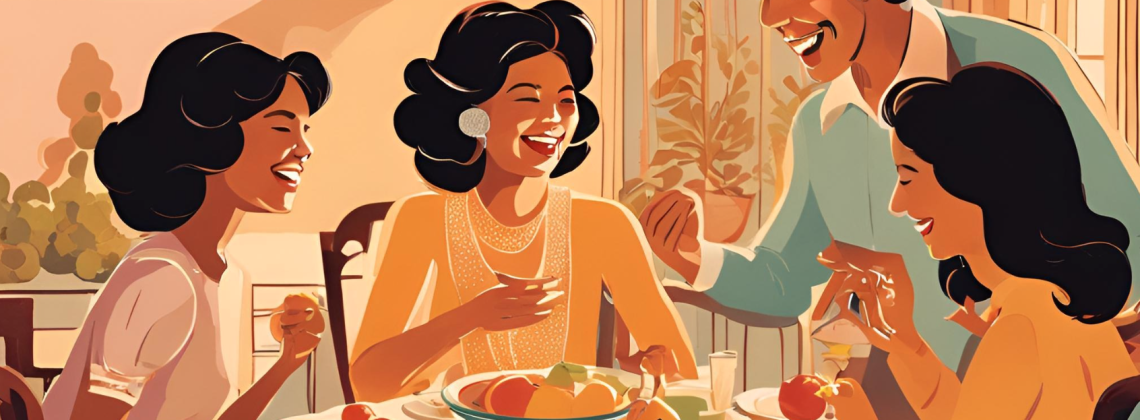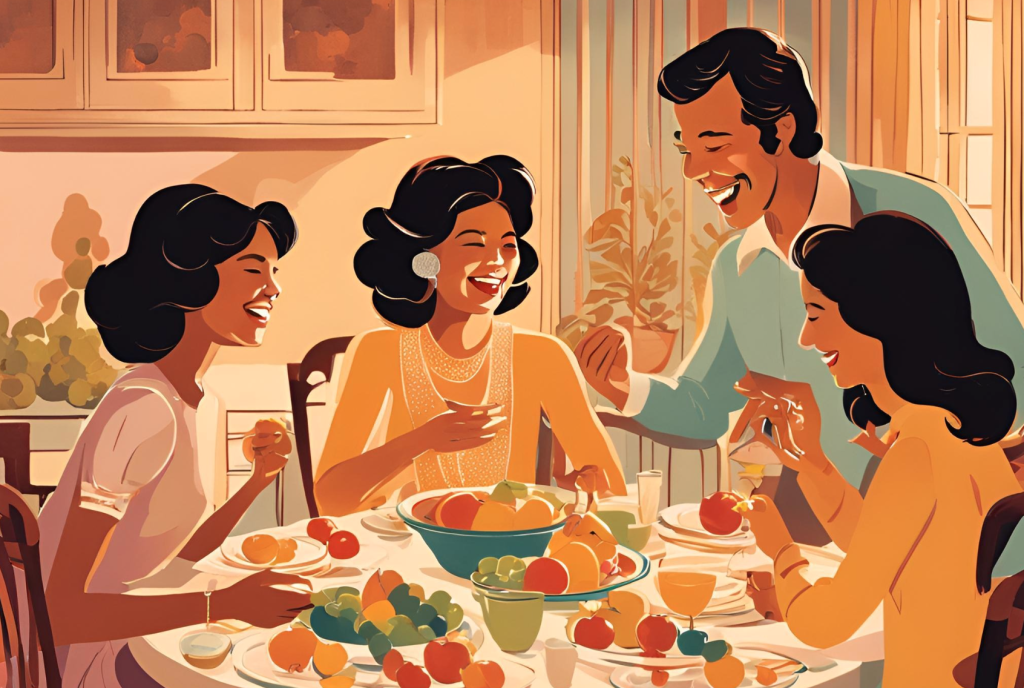

When childhood moves at the speed of light, the family dinner is essential
When I was a kid, my father traveled a lot during the week. In fact, we called him “Weekend Dad.” This was no insult, mind you. We knew dad worked hard to provide for his family, and his job took him all over the eastern United States. Every single week, he would tiptoe out of the house early Tuesday morning and drive to the first in a list of five or six small towns that he needed to visit that week. He lived like some kind of corporate nomad, bouncing from hotel to hotel—eating nabs and Vienna sausages, ramen and cup o’ soup, vending machine snacks and fast food—only to drag himself home exhausted on Friday evening with his ulcer and Costco-sized bottle of Tums.
To us, “Weekend Dad” was an honorific term, and we understood his sacrifice. Sure, he came home Friday to a wife and kids who bombarded him with a litany of complaints and issues not two minutes after he walked in the door—but he was happy to be home, and we missed him. He may have been gone during the week, but he was ours on the weekends. With each passing day at home, my dad relaxed and rested as he worked in the yard and puttered in his workshop. As “Weekend Dad,” my dad could be himself—and our family (and his stomach) were the better for it.
During the week, it was “us girls” at home. While my sister and I thrived in a matrifocal biosphere that prioritized our girlhoods, we were oblivious to the fact that my mom spent a substantial part of her marriage as a married single mom. She held down the fort as a mother, accounts supervisor, chauffeur, and disciplinarian, while simultaneously managing the house, delegating duties, and breaking up fights between my sister and me. And she did all of this while working a full-time job as a registered nurse. What resulted was the development of two separate childhoods for my sister and me—a girlhood spent in a house of women run collectively by women and a suburban childhood spent with “Weekend Dad” presiding over his nuclear family Saturday thru Monday.
Within that duality sat two separate foodways. The nights that my dad traveled were our nights to eat all the things he wouldn’t. Mom experimented with recipes she found in Good Housekeeping and Southern Living, and we ate a lot of one-pot dinners and tray bakes. Not only was she a fan of Bisquick but she loved any recipe that used Cream of [insert ingredient here] Soup. Our favorites were her homemade corn fritters with syrup, black beans and rice with fresh salsa, tuna casserole with egg noodles and gooey melted cheese on top, and a broccoli cheddar soup that was so thick and cheesy that it would make any restaurant jealous.
Friday night dinners were usually bland offerings of boiled chicken with yellow rice and microwaved frozen broccoli that was still shaped like the brick my mother nuked five minutes before we sat down to eat. We dreaded these dinners, but my father was thankful for something other than the things that passed themselves off as food that he choked down in his hotel room after a long day’s work. By the time he came home on Friday, his stomach was a churning pit of stress and discomfort. Weekend Dad’s foodways were my mother’s way of restoring his gastrointestinal health.
No matter the night, we made dinner and ate together as a family. Whether it was my mom or “Weekend Dad” on duty, each of us had our assigned task during meal prep. Dinner was eaten at the kitchen table free from the television and long before cellphones. We talked about our days, told jokes and silly stories, and planned upcoming holidays, vacations, and celebrations. After dinner, my parents had some much-needed alone time in the den (or talked on the phone on the nights he was away), while my sister and I cleared the table and cleaned the kitchen (because whoever cooked dinner was exempt from cleaning up).
To this day, these are traditions that I’ve maintained in my own household. Granted, my son has the luxury of seeing both of his parents every day, and sure, my ten-year-old isn’t as conversational as my sister and I were in our teens. And, honestly, I’m not even sure what he is saying half the time when he talks about “drip” and “rizz” and who “ate and left no crumbs”—but I’m learning. “No cap.” Still, family dinner at my kitchen table is our time to visit and connect, unplug from the iPad and university grading platform, and just enjoy our time together as a family. When childhood moves at the speed of light, Family Dinner remains an essential part of our family’s foodways—just like when I was his age.
Colleen Vasconcellos is Professor of Atlantic History at the University of West Georgia. She is the author of Slavery, Childhood, and Abolition in Jamaica, 1788-1838 (Georgia, 2015) and the co-editor, with Jennifer Hillman Helgren, of Girlhood: A Global History (Rutgers, 2010).